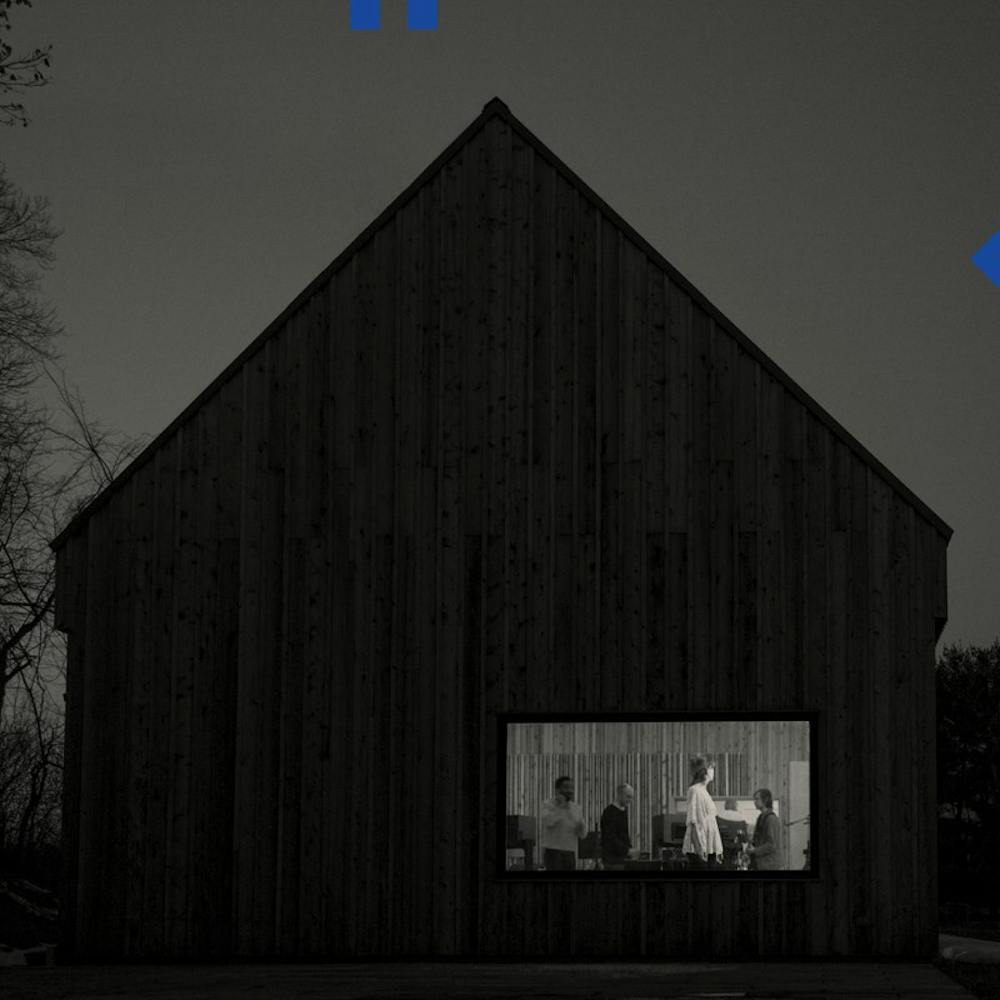There comes a time in many artists’ careers where they decide to go electronic. Without fail, that album’s pre-release hype discussion centers around the question of whether or not it’ll be this band’s Kid A, Age of Adz, or Yeezus, drastic reinventions from some of this era’s most critically acclaimed artists. Most often it’s not. It generally signals an artist desperately trying to kindle the dying embers of their creative flame. For some, it opens a whole new world of possibilities like it did last year for Bon Iver, who went full bleep-bloop with heavy use of synths,
Sleep Well Beast kicks off with “Nobody Else Will Be There,” a sleepy and somber track that introduces some of the record’s most prevalent themes such as anxiety and troubled relationships. Matt Berninger, the lead singer, spends most of the album lamenting the loving relationship he and his wife Carin once had. His most vivid imagery shines through in these moments most notably on “Empire Line” when Berninger paints a picture of he and his wife on a train in winter, “You’ve been sleeping for miles / So what did you see? / Here the sky’s been falling white flowers / And there’s in all the trees.” The vocal and instrumental chemistry is particularly strong on this track. The faint introduction of hi-hats as Berninger talks of tapping on the table and the sweet, cheerful piano melody behind the repeated request, “Can’t you find a way?” combine to make this one of the heaviest songs on the album.
The percussion is particularly impressive on “Day I Die” and the
Sleep Well Beast’s highlight comes next; “I’ll Still Destroy You” is engaging from start to finish, presenting new sounds, tempos, and registers throughout. Berninger starts the track with a clever double entendre in the opening couplet, “It’s so easy to set off / The molecules and the caplets” another example of the recurring theme of drug use as well as a subtle nod to the Montagues and Capulets from Romeo and Juliet.
2016’s election and subsequent social turmoil seep through fairly transparently at points on the record, especially on “The System Only
The instrumental arrangements are clearly meticulously arranged and densely layered, but by and large they don’t sound good enough to justify the minimal lyrical output.
Even the more novel ideas tend to fall flat on their face. The sampled spoken word section on “Walk It Back” doesn’t pack the intended punch; it’s a gratuitously tedious addition that could be accomplished with a short verse from Berninger. So many of the songs follow the same structure of opening with two verses separated by a chorus and then proceed to repeat the chorus over the last half of the song while sometimes including a bridge to keep the listener from completely tuning out. The worst offenders of this pattern fail to introduce any fresh ideas in the last minute of the song, rendering them entirely unnecessary and tedious bookends to a song that didn’t provide much to begin with.
The closing track is the chief example. “Sleep Well Beast” repurposes the same percussion pattern from “Guilty Party,” which could be forgiven if it weren’t the focal point of the track. The pianos, guitars, and synths are quite faint for a healthy portion of the track, drawing far too much attention to the recycled drum beat. The record suffers from this problem on a macro scale as well; following the strongest triumvirate of tracks on the album, Sleep Well Beast tapers off in the final quarter of the record with a group of tracks that fail to explore new sonic territory and are devoid of Berninger’s usual lyrical brilliance.
Sleep Well Beast suffers from questionable pacing decisions, recycled structures, and half-baked ideas. It’s carried on the strength of five songs, three of which premiered as singles prior to the album’s release. Rarely do any of the tracks sound bad, but more often than not The National finds themselves stuck in a rut midway through the song and continue to go through the motions until they fade out into the next tune. The saving graces are Berninger’s voice and the drums; both provide enough earworms to keep the listener on board but not to the levels of some of their past records. The introduction of electronics opens up a variety of avenues for the band to explore on their next record although it seems more likely than not that The National’s best days are behind them.
Ryan Moloney is a writer for Daily Lobo Music. He can be contacted at music@dailylobo.com
Get content from The Daily Lobo delivered to your inbox






